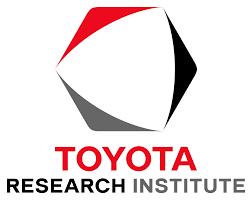AI agents are frequently touted as the next transformative development in the field of artificial intelligence (AI). However, there is still no universally accepted definition of what exactly constitutes an AI agent. These AI-driven systems aim to perform tasks traditionally handled by human employees, such as customer service, human resources, or IT support, but the scope of their potential applications is much broader. The lack of a cohesive definition among tech giants and experts has led to varying interpretations of what AI agents are and what they can do.
At their core, AI agents are software systems powered by AI technologies that can perform a range of tasks on behalf of users. These tasks can span across different systems and often require more than just simple query responses. An AI agent might assist with coding for developers, create marketing schemes, or help IT professionals troubleshoot issues by analyzing log data. Essentially, they are designed to automate complex processes with minimal human intervention.
Despite the broad agreement on their utility, leading tech companies and experts have differing views on what AI agents encompass:
- Google sees AI agents as task-based assistants tailored to specific jobs, such as coding or marketing.
- Asana envisions AI agents as virtual co-workers that manage assigned tasks efficiently.
- Sierra, a startup by former Salesforce and Google executives, focuses on AI agents as advanced customer experience tools that go beyond traditional chatbots.
This disparity in definitions reflects the early stage of AI agent development and the diverse applications envisioned by different stakeholders.
The Complexity of AI Agents
AI agents are intended to perceive their environment, reason about it, make decisions, and act to achieve specific goals autonomously. They leverage various AI/ML techniques, including natural language processing (NLP), machine learning, and computer vision, to operate dynamically alongside other agents and humans. Despite this potential, the actual implementation and capabilities of AI agents can vary significantly, leading to some confusion about their exact nature and functionality.
Many experts, like Aaron Levie, co-founder and CEO of Box, are optimistic about the future capabilities of AI agents. They foresee advancements in GPU performance, model efficiency, and AI infrastructure driving the evolution of these systems. However, others, like MIT’s Rodney Brooks, caution that AI development faces tougher challenges than other technologies, such as semiconductor advancements under Moore’s law.
One major hurdle is integrating AI agents across multiple systems, especially when dealing with legacy systems that lack basic API access. This integration complexity means that while AI agents hold promise, their current capabilities may be overestimated.
The Evolution of AI Agents
David Cushman from HFS Research views AI agents as assistants that help humans achieve strategic goals. He emphasizes the challenge of enabling machines to handle contingencies independently, a capability that is not yet fully realized. Jon Turow of Madrona Ventures argues that building a robust AI agent infrastructure is crucial for their success. This involves creating a tech stack specifically designed for AI agents, which can support scale, performance, and reliability.
The future of AI agents likely involves multiple models working together rather than a single monolithic AI. This approach would allow for specialized tasks to be handled by different models, coordinated by an overarching system that delegates tasks effectively. Fred Havemeyer from Macquarie US Equity Research suggests that we are moving towards a future where AI agents can take abstract goals and autonomously break them down into actionable steps.
AI agents represent a promising advancement in AI technology, capable of automating complex tasks across various domains. However, the field is still evolving, and the full realization of autonomous AI agents requires further breakthroughs and infrastructure development. As the technology matures, it will be essential to balance optimism with a realistic understanding of current capabilities and limitations. This balanced approach will help ensure that AI agents can achieve their envisioned potential while addressing the challenges that lie ahead.
See also: The AI Double-Edged Sword: Enhancing Individual Creativity While Dampening Collective Novelty


















